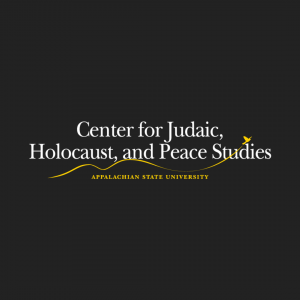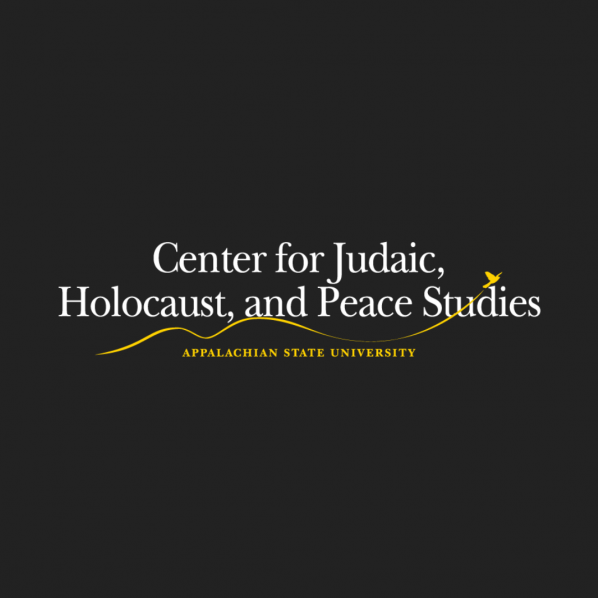BOONE, N.C. — From May 21-29, 2022, 5 Appalachian State students embarked on a journey from North Carolina to Israel through the generous support of the Greensboro Jewish Federation's Miriam and Abe Brenner Holocaust Education Scholarship Fund. While in Israel, students connected with Western Galilee College (WGC) as part of an ongoing collaboration with App State's Center for Judaic, Holocaust and Peace Studies (CJHPS).
Prior to leaving, the students completed the "Medicine, Nazism and the Holocaust" course offered by the Department of History in Spring 2022. This course was the first course taught as a collaboration between WGC and App State. The CJHPS, working with WGC and App State's Office of International Education and Development, developed the course for students pursuing the Judaic, Holocaust and Peace Studies minor. Dr. Miriam Offer, a senior lecturer at WGC and leading expert on the history of medicine during the Holocaust, taught the course to 15 Israeli students from WGC and 15 App State students. Students met weekly for lectures and cross-cultural discussions via Zoom.
Following completion of the course, 5 students were awarded full scholarships to continue their research in Israel:
- Armando Barradas Valencia, a senior global studies major from Xalapa, Veracruz, Mexico
- Danny Collins, a senior religious studies major from Mars Hill, North Carolina
- Parker Duck, a senior history major from Kitty Hawk, North Carolina
- Liam Lentz, a junior religious studies major from Laurinburg, North Carolina
- Kiana Linehan, a junior global studies major from Waxhaw, North Carolina
The Greensboro Jewish Federation's Brenner Holocaust Education Scholarship Fund offers financial support to non-Jewish junior and senior undergraduate students, graduate students and teachers to study the Holocaust in Europe in order to foster greater understanding of Jewish issues. Previously, the Brenner Holocaust Education Scholarship Fund and the Greensboro Jewish Federation have supported CJHPS student travel to Israel, Germany, Poland and Austria.

In May, App State students traveled to Western Galilee College in Akko, Israel through the generous support of the Greensboro Jewish Federation's Miriam and Abe Brenner Holocaust Education Scholarship Fund. Photo submitted by Kiana Linehan.
After arriving in Israel, the five students traveled to WGC in Akko and met with their professors and Israeli classmates. They were able to socialize with their classmates in person, as well as gain face-to-face insights into their research. Linehan reflected, “Every location we visited in Israel was beautiful. As interesting as the archives were in the museums we visited, the conversations and sights shared between myself, my fellow App State peers and our peers and professors from WGC had a much bigger impact on my experience.”
While at WGC, the students met with key people in Israel - including their professor, Dr. Miriam Offer; Dr. Boaz Cohen, head of the Holocaust studies program at WGC; Dr. Iael Nidam Orvieto at Yad Vashem; and Noam Rachmilevitch, head archivist at the Ghetto Fighters' House - to inform their research projects. The combined efforts of the faculty, archivists and Israeli students allowed the App State students to learn more about the research process. "We discussed our findings while Dr. Offer and Dr. Boaz helped us in focusing our work and finding other sources," explained Linehan. "It was amazing to see the minds of Offer and Boaz work to tell us the exact locations of events (with dates!) and names of individuals."
The students’ research focuses stemmed from the course, covering a wide variety of topics. For example, Lentz evaluated whether the generally negative views of the Warsaw Ghetto Judenrat were fair, while Duck explored the relationships among patients and doctors in the ghettos. While in Israel, the students developed a wealth of new and interesting ways to investigate the subject of medicine and the Holocaust. “As an undergraduate history major, being able to participate in the process of history was something truly special to me. I have studied famous historians and analyzed how they conducted their research, so now to be able to apply what I have learned thus far in a real-life scenario was game-changing,” said Duck.
For his project, Collins started with two main texts, "The Neuroscience of the Religious Experience" and "The Jewish Book of Life," to evaluate pain in the Warsaw Ghetto as manifested through depression and anxiety in children. Collins described his experience in the archives, explaining: “I could have cried. I sat for hours just reading the titles of chapters in Hebrew, translating them to English and then marking down which ones I needed to keep around...The chance to sit with scholars who had the minds that the staff at the museum do and look at these books trying to find something, anything that could be helpful. It is something I will never not cherish as one of the dearest memories I have.”
In their journals, the students reflected on what they gained from the trip: they became better scholars and researchers, they gained a new and deep respect for Israel and they came to see how important it is to learn about a people’s culture and ways of life. Duck, who celebrated his 21st birthday while in Israel, wrote: “Israel is such a beautiful and history-dense environment, it opened my eyes to the world.”
Providing students a chance to interact with Israeli students in person not only offered a greater understanding of the country they had come to visit, but also the rich layers of culture one might miss, like how food is shared and eaten in Israel or the many cats they met. “Judaism is not just about what you might wear or the kind of food you choose to eat, it is a lifestyle. A commitment,” wrote Barradas Valencia. "This trip was more than research, personally it opened my eyes to Judaism in a way that otherwise would never have been possible. Walking the streets of Jerusalem and Akko and interacting with everyday people made me realize how important Judaism is for them and how Judaism as a religion has shaped the lives of many," he added.
The partnership between WGC and App State will continue this Spring with anticipation that another round of students will have the opportunity to travel to Israel through the support of the Greensboro Jewish Federation's Brenner Holocaust Education Scholarship Fund. WGC professors will teach two new courses through the Department of History: "Resistance and the Holocaust" and "Rescue and the Holocaust." In exchange, Dr. Rachel Shinnar, professor in the Department of Management, will offer a management course titled “International Human Resource Management,” and Dr. Barbara Zaitzow, professor in the Department of Government and Justice Studies, will offer a criminal justice course titled “Contemporary Issues in Corrections.” To encourage multicultural perspectives during discussion, the four courses will consist of half American and half Israeli students again.
###
About the Center for Judaic, Holocaust and Peace Studies
Appalachian State University’s Center for Judaic, Holocaust, and Peace Studies was founded in 2002 to develop new educational opportunities for students, teachers and the community. Located administratively within the College of Arts and Sciences, the center seeks to strengthen tolerance, understanding and remembrance by increasing the knowledge of Jewish culture and history, teaching the history and meaning of the Holocaust, and utilizing these experiences to explore peaceful avenues for human improvement and the prevention of further genocides. The Center offers a Judaic, Holocaust and Peace Studies minor, through which many of these courses are offered. Learn more at https://holocaust.appstate.edu.
About the Department of Government and Justice Studies
Appalachian State University’s Department of Government and Justice Studies offers undergraduate programs in political science and criminal justice, and graduate programs in political science and public administration. Housed in the College of Arts and Sciences, the department has over 600 undergraduate majors and more than 70 graduate students. Learn more at https://gjs.appstate.edu.
About the Department of History
The Department of History offers a broad curriculum in local, national, regional and world history at both the undergraduate and graduate levels, which encourages history majors to develop a comprehensive approach to human problems. The study of history is an essential part of a liberal arts education and offers valuable preparation for many careers, such as law, journalism, public history, public service and business, as well as in teaching and the advanced discipline of history. Learn more at https://history.appstate.edu.
About the Department of Management
The Department of Management offers undergraduate and graduate degree programs to prepare students for managerial responsibilities in today’s dynamic environment. Learn more at https://management.appstate.edu.
About the Office of International Education and Development
The OIED is responsible for spearheading the internationalization efforts at Appalachian. The internationalization mission of Appalachian is to develop awareness, knowledge, appreciation and respect of cultural differences in both domestic and international contexts in its students, faculty, staff and the surrounding communities. The university is also dedicated to creating a campus environment that builds the theoretical and practical skills needed to interact effectively in a global society. Learn more at https://international.appstate.edu.
By Lauren Andersen and Amy Hudnall
November 28, 2022
BOONE, N.C.

